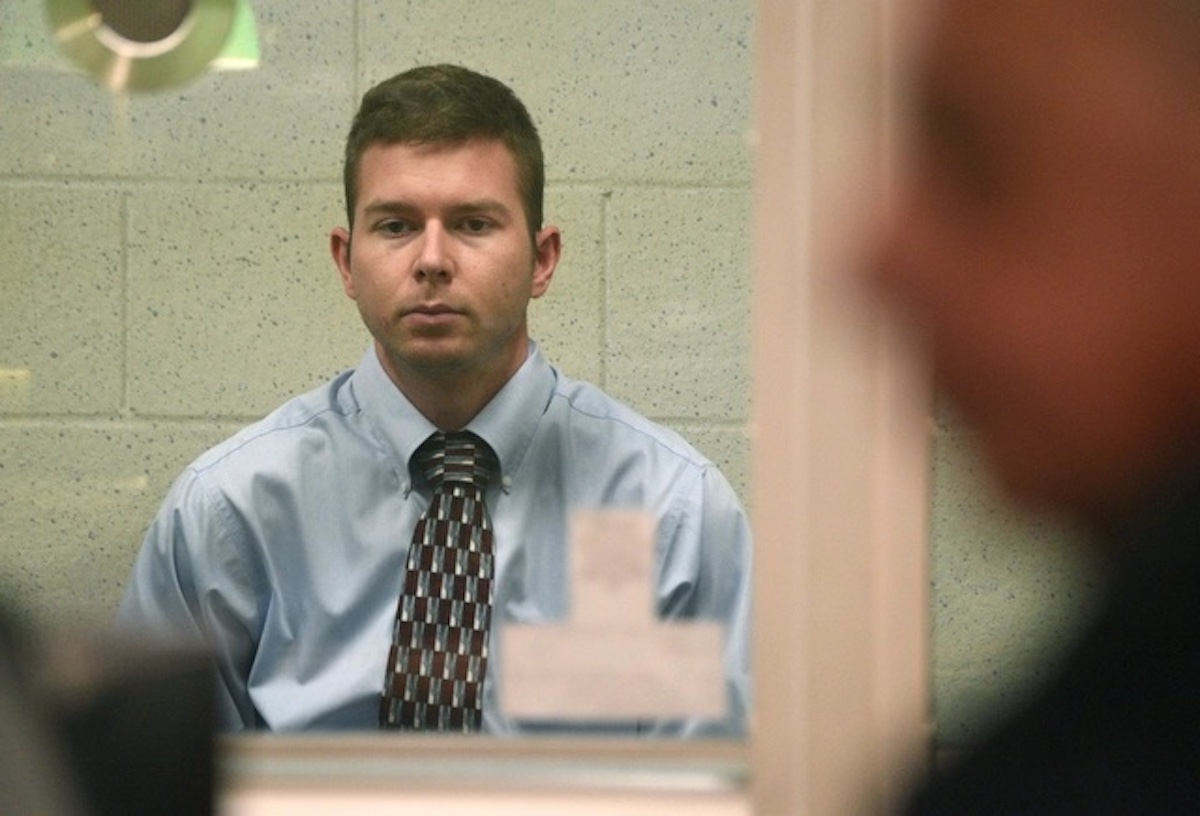Just over six years after the triple homicide of Santa Barbara herbalist Dr. Henry Han; Han’s wife, Jennie Yu; and their 5-year-old daughter, Emily Han, the man convicted of the murders, Pierre Haobsh, has officially been sentenced and will spend the rest of his life in prison without the chance of parole — though Haobsh spent much of the sentencing hearing fighting for a chance to maintain his innocence.
Haobsh was granted his petition to represent himself on March 22, dropping his team of public defenders Christine Voss and Michael Hanley just weeks before the sentencing, in an apparent attempt to introduce evidence which would clear his name. Judge Brian Hill, who has presided over the bench trial and rendered the guilty verdict in November, allowed Haobsh to move forward but warned him that he would not push sentencing any further than April 15.
On Friday, Haobsh was transported into Judge Hill’s Department 2 courtroom, shackled and in a county-issue orange jumpsuit. He sat alone at the counsel table, with a mess of handwritten yellow legal notes sprawled across the desk, and spoke with an air of confidence as he laid out a motion for a new trial and a petition writ of habeas corpus. His motions, he explained, were based on “failure of sheriff’s investigators” and his attorneys to gather evidence in his defense; Haobsh also raised a question of a “third-party culpability.”
Both motions were denied, with Judge Hill explaining — through repeated interruptions and objections from Haobsh — that the proper way to introduce a motion for a new trial or writ of habeas corpus would be after sentencing.
Several times during the sentencing hearing, Haobsh seemed to fail to understand the procedure, at points challenging the judge’s own interpretation of the law. “This court is not following procedure,” he said, later alleging a constitutional violation and grounds for mistrial.
Judge Hill explained further that unless Haobsh had a written declaration from somebody who was not a witness in the original trial, stating under penalty of perjury that they could account for his whereabouts on the night of the murders, there would be no way to adress a motion before sentencing. Haobsh, refusing to concede, said there was evidence of “Department of Energy” operatives, but he had not been given adequate time or been provided the private investigator and paralegal he requested.
Sign up for Indy Today to receive fresh news from Independent.com, in your inbox, every morning.
“This isn’t an opportunity for you to just say whatever comes into your head,” Hill said. He then emphasized to Haobsh that only the signed declaration could be considered, not vague references to “unnamed or unknown” hitmen. “That’s not sufficient. Disturbing a verdict — that’s not an easy thing to do, Mr. Haobsh.”
Judge Hill, along with prosecutors Hilary Dozer and Ben Ladinig, praised Haobsh’s previous counsel for their work. “I’ve told you that your counsel was superb,” Hill said of public defenders Voss and Hanley.
Ladinig, who led the prosecution during much of the witness testimony, admonished Haobsh for his last-minute antics. “Mr. Haobsh’s motion, much like his testimony, is fantastical nonsense,” Ladinig said. He said that seeing Haobsh arrested was “the proudest day of my prosecuting career,” while watching eight bullets pulled from 5-year-old Emily’s skull was among the worst things he had seen. In his closing statements, Ladinig referred to Haobsh’s “narcissistic, evil ways” and the “monstrous intent” behind his actions. “The defendant needs to be sent to prison for the rest of his life,” he said.
Don Goldberg, a family friend and business associate to Dr. Han provided a victim impact statement, relaying the pain he witnessed spread through the family in the aftermath of the killings. “Had Emily lived, she would be 11 now,” Goldberg said. “The family is devastated.”
Judge Hill, citing the “overwhelming amount of evidence,” followed each of the recommended actions in the sentencing report, which called for three consecutive life sentences — without the possibility of parole — followed by three more terms of 25-to-life, to be served consecutively, for the added enhancements of multiple murders and murder for financial gain. Haobsh will also be forced to pay $10,000 in fines, and another $25,000 to the California Victim Compensation Board. In his final statements, Judge Hill said Haobsh’s crimes reflect a “depravity and callousness that is unusual,” and questioned his attempts to avoid accountability. “It’s hard to get in your mind. I don’t know why you are taking the approach you’re taking,” he said.
Haobsh is planning to appeal the verdict and closed the hearing by saying the outcome would have been different “if I had a jury trial.”
Support the Santa Barbara Independent through a long-term or a single contribution.




